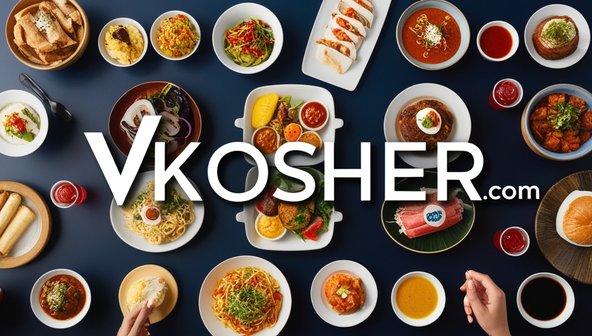Understanding Kosher Cheese: Tradition, Certification, and Diversity
Kosher cheese is a fascinating intersection of tradition, dietary laws, and modern food production techniques. To fully appreciate what makes cheese kosher, one must delve into the complex guidelines of kashrut, the body of Jewish law that dictates which foods are permissible and how they must be prepared. Kosher cheese is more than just a dietary preference; it is a reflection of centuries-old religious practices, combined with modern manufacturing standards.
The Foundations of Kosher Dietary Laws
Kashrut, the set of Jewish dietary laws, is rooted in the Torah, the central reference of Jewish religious law. These laws are not just guidelines; they are seen as divine commandments that dictate what observant Jews can eat and how their food must be prepared. The rules extend beyond what animals can be consumed to include how they are slaughtered, how foods are processed, and even what combinations of foods are permissible. For cheese to be considered kosher, it must meet stringent requirements that are supervised by a rabbi or a kosher certification authority.
The Ingredients of Kosher Cheese
The primary ingredient in any cheese is milk, but not all milk is considered kosher. Milk must come from a kosher animal, which includes cows, sheep, goats, and certain other animals that chew cud and have cloven hooves. Animals such as pigs and camels are not kosher, and therefore, their milk cannot be used in kosher cheese production.
In addition to the source of the milk, the enzymes used in cheese-making are of critical importance. Cheese is made by coagulating milk using rennet, an enzyme traditionally derived from the stomach lining of calves. However, this presents a challenge for kosher cheese production, as the rennet must come from a kosher animal that was slaughtered according to kosher laws, or it must be a microbial or vegetable-based enzyme that is considered acceptable by kosher standards. The use of microbial or vegetable rennet is common in kosher cheese production because it avoids the complexities associated with animal-derived rennet.
The Process of Kosher Cheese Production
The cheese-making process must adhere to strict kosher guidelines. One of the key requirements is that a mashgiach, a rabbinical supervisor, must oversee the entire production process to ensure that all ingredients and procedures comply with kashrut. This includes ensuring that the milk used comes from a kosher source, that the equipment used in production is kosher, and that no non-kosher substances come into contact with the cheese at any stage.
The equipment used in cheese production must also be kosher. This means that it has either never been used with non-kosher substances or has undergone a thorough kosherization process. Kosherization typically involves cleaning and purging the equipment with boiling water or using other methods prescribed by Jewish law to remove any traces of non-kosher substances.
The Diversity of Kosher Cheese
Kosher cheese is available in a wide variety of types and flavors, reflecting the rich diversity of cheese-making traditions from around the world. From classic hard cheeses like cheddar and parmesan to soft cheeses like brie and cream cheese, kosher versions of almost every type of cheese are available. These cheeses are produced in kosher-certified facilities, ensuring that observant Jews can enjoy them without concern.
The global demand for kosher cheese has led to an increase in production by both small artisanal producers and large commercial dairies. In the United States, Israel, and Europe, kosher cheese is widely available, often with certifications from well-known kosher authorities. These certifications, which may come from organizations like the Orthodox Union (OU) or Star-K, are a mark of trust for consumers who adhere to kosher dietary laws.
Kosher Certification and Consumer Trust
Kosher certification is a meticulous process that involves not only the examination of ingredients but also the scrutiny of the entire production process. This process is conducted by a kosher certification agency, which sends a mashgiach to inspect the facility and oversee the production. The mashgiach ensures that all aspects of production comply with kosher law, from the sourcing of ingredients to the final packaging of the cheese.
Once the cheese is certified kosher, it can carry the symbol of the certification agency, which is recognized and trusted by consumers. This symbol is more than just a label; it is a guarantee that the cheese meets the strict standards of kashrut. For many consumers, the presence of this symbol is essential when purchasing kosher cheese, as it provides assurance that the product aligns with their dietary practices.
The Cultural and Religious Significance of Kosher Cheese
Kosher cheese holds a special place in Jewish culture and religious practice. It is not just food; it is a part of the religious observance that connects Jews to their faith and to centuries of tradition. For example, during the holiday of Shavuot, it is customary to eat dairy products, including cheese, as a way of commemorating the giving of the Torah at Mount Sinai. Kosher cheese plays a central role in the festive meals of this holiday, symbolizing the connection between food, faith, and tradition.
In addition to its religious significance, kosher cheese is also an important part of Jewish culinary traditions. Jewish communities around the world have developed their own unique styles of kosher cheese, reflecting the diverse cultures in which they live. Whether it’s the sharp, tangy flavors of Eastern European Jewish cheese or the milder, creamier varieties favored in Mediterranean Jewish communities, kosher cheese is a reflection of the rich tapestry of Jewish culinary heritage.
The Challenges and Opportunities of Producing Kosher Cheese
Producing kosher cheese presents unique challenges, particularly for small-scale producers who may not have the resources to meet the stringent requirements of kosher certification. The need for kosher supervision, the use of specific ingredients, and the requirement for kosher equipment can add significant costs to production. However, for those who are able to meet these challenges, the growing demand for kosher cheese presents a significant opportunity.
The kosher food market is expanding rapidly, driven by increasing interest in kosher products not only among Jews but also among consumers who perceive kosher foods as being of higher quality or who have dietary restrictions that align with kosher laws. This has led to a growing number of non-Jewish consumers purchasing kosher cheese, particularly in regions where kosher certification is seen as a mark of quality and purity.
The Future of Kosher Cheese
As the kosher food market continues to grow, the future of kosher cheese looks bright. Advances in food technology are making it easier for producers to create high-quality kosher cheeses, and the increasing availability of kosher-certified ingredients is opening up new possibilities for innovation. At the same time, the global demand for artisanal and specialty cheeses is creating opportunities for kosher cheese producers to expand their offerings and reach new markets.
In the coming years, we can expect to see even greater diversity in the types of kosher cheese available, as well as increased availability in mainstream markets. This will not only benefit Jewish consumers but also expand the appeal of kosher cheese to a broader audience, ensuring that this important tradition continues to thrive in the modern world.
Kosher cheese is not just a product; it is a testament to the enduring power of tradition in a rapidly changing world. As more people discover the unique qualities of kosher cheese, its popularity is likely to continue to grow, bringing the rich flavors and deep cultural significance of this ancient food to new generations of consumers. Whether enjoyed as part of a religious observance or simply as a delicious and wholesome food, kosher cheese is a true reflection of the intersection between faith, tradition, and modern food production.




